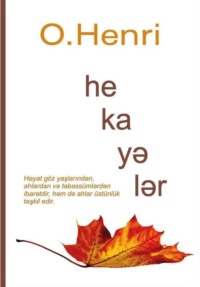 полная версия
полная версияRolling Stones
Purest atmosphere, sir, on earth! You might think from the river winding through our town that we are malarial, but, no, sir! Repeated experiments made both by the Government and local experts show that our air contains nothing deleterious – nothing but ozone, sir, pure ozone. Litmus paper tests made all along the river show – but you can read it all in the prospectuses; or the Santonian will recite it for you, word by word.
We may achieve climate, but weather is thrust upon us. Santone, then, cannot be blamed for this cold gray fog that came and kissed the lips of the three thousand, and then delivered them to the cross. That night the tubercles, whose ravages hope holds in check, multiplied. The writhing fingers of the pale mist did not go thence bloodless. Many of the wooers of ozone capitulated with the enemy that night, turning their faces to the wall in that dumb, isolated apathy that so terrifies their watchers. On the red stream of Hemorrhagia a few souls drifted away, leaving behind pathetic heaps, white and chill as the fog itself. Two or three came to view this atmospheric wraith as the ghost of impossible joys, sent to whisper to them of the egregious folly it is to inhale breath into the lungs, only to exhale it again, and these used whatever came handy to their relief, pistols, gas or the beneficent muriate.
The purchaser of the morphia wanders into the fog, and at length, finds himself upon a little iron bridge, one of the score or more in the heart of the city, under which the small tortuous river flows. He leans on the rail and gasps, for here the mist has concentrated, lying like a foot-pad to garrote such of the Three Thousand as creep that way. The iron bridge guys rattle to the strain of his cough, a mocking phthisical rattle, seeming to say to him: "Clickety-clack! just a little rusty cold, sir – but not from our river. Litmus paper all along the banks and nothing but ozone. Clacket-y-clack!"
The Memphis man at last recovers sufficiently to be aware of another overcoated man ten feet away, leaning on the rail, and just coming out of a paroxysm. There is a freemasonry among the Three Thousand that does away with formalities and introductions. A cough is your card; a hemorrhage a letter of credit. The Memphis man, being nearer recovered, speaks first.
"Goodall. Memphis – pulmonary tuberculosis – guess last stages." The Three Thousand economize on words. Words are breath and they need breath to write checks for the doctors.
"Hurd," gasps the other. "Hurd; of T'leder. T'leder, Ah-hia. Catarrhal bronkeetis. Name's Dennis, too – doctor says. Says I'll live four weeks if I – take care of myself. Got your walking papers yet?"
"My doctor," says Goodall of Memphis, a little boastingly, "gives me three months."
"Oh," remarks the man from Toledo, filling up great gaps in his conversation with wheezes, "damn the difference. What's months! Expect to – cut mine down to one week – and die in a hack – a four wheeler, not a cough. Be considerable moanin' of the bars when I put out to sea. I've patronized 'em pretty freely since I struck my – present gait. Say, Goodall of Memphis – if your doctor has set your pegs so close – why don't you – get on a big spree and go – to the devil quick and easy – like I'm doing?"
"A spree," says Goodall, as one who entertains a new idea, "I never did such a thing. I was thinking of another way, but – "
"Come on," invites the Ohioan, "and have some drinks. I've been at it – for two days, but the inf – ernal stuff won't bite like it used to. Goodall of Memphis, what's your respiration?"
"Twenty-four."
"Daily – temperature?"
"Hundred and four."
"You can do it in two days. It'll take me a – week. Tank up, friend Goodall – have all the fun you can; then – off you go, in the middle of a jag, and s-s-save trouble and expense. I'm a s-son of a gun if this ain't a health resort – for your whiskers! A Lake Erie fog'd get lost here in two minutes."
"You said something about a drink," says Goodall.
A few minutes later they line up at a glittering bar, and hang upon the arm rest. The bartender, blond, heavy, well-groomed, sets out their drinks, instantly perceiving that he serves two of the Three Thousand. He observes that one is a middle-aged man, well-dressed, with a lined and sunken face; the other a mere boy who is chiefly eyes and overcoat. Disguising well the tedium begotten by many repetitions, the server of drinks begins to chant the sanitary saga of Santone. "Rather a moist night, gentlemen, for our town. A little fog from our river, but nothing to hurt. Repeated Tests."
"Damn your litmus papers," gasps Toledo – "without any – personal offense intended."
"We've heard of 'em before. Let 'em turn red, white and blue. What we want is a repeated test of that – whiskey. Come again. I paid for the last round, Goodall of Memphis."
The bottle oscillates from one to the other, continues to do so, and is not removed from the counter. The bartender sees two emaciated invalids dispose of enough Kentucky Belle to floor a dozen cowboys, without displaying any emotion save a sad and contemplative interest in the peregrinations of the bottle. So he is moved to manifest a solicitude as to the consequences.
"Not on your Uncle Mark Hanna," responds Toledo, "will we get drunk. We've been – vaccinated with whiskey – and – cod liver oil. What would send you to the police station – only gives us a thirst. S-s-set out another bottle."
It is slow work trying to meet death by that route. Some quicker way must be found. They leave the saloon and plunge again into the mist. The sidewalks are mere flanges at the base of the houses; the street a cold ravine, the fog filling it like a freshet. Not far away is the Mexican quarter. Conducted as if by wires along the heavy air comes a guitar's tinkle, and the demoralizing voice of some señorita singing:
"En las tardes sombrillos del invierroEn el prado a Marar me reclinoY maldigo mi fausto destino —Una vida la mas infeliz."The words of it they do not understand – neither Toledo nor Memphis, but words are the least important things in life. The music tears the breasts of the seekers after Nepenthe, inciting Toledo to remark:
"Those kids of mine – I wonder – by God, Mr. Goodall of Memphis, we had too little of that whiskey! No slow music in mine, if you please. It makes you disremember to forget."
Hurd of Toledo, here pulls out his watch, and says: "I'm a son of a gun! Got an engagement for a hack ride out to San Pedro Springs at eleven. Forgot it. A fellow from Noo York, and me, and the Castillo sisters at Rhinegelder's Garden. That Noo York chap's a lucky dog – got one whole lung – good for a year yet. Plenty of money, too. He pays for everything. I can't afford – to miss the jamboree. Sorry you ain't going along. Good-by, Goodall of Memphis."
He rounds the corner and shuffles away, casting off thus easily the ties of acquaintanceship as the moribund do, the season of dissolution being man's supreme hour of egoism and selfishness. But he turns and calls back through the fog to the other: "I say, Goodall of Memphis! If you get there before I do, tell 'em Hurd's a-comin' too. Hurd, of T'leder, Ah-hia."
Thus Goodall's tempter deserts him. That youth, uncomplaining and uncaring, takes a spell at coughing, and, recovered, wanders desultorily on down the street, the name of which he neither knows nor recks. At a certain point he perceives swinging doors, and hears, filtering between them a noise of wind and string instruments. Two men enter from the street as he arrives, and he follows them in. There is a kind of ante-chamber, plentifully set with palms and cactuses and oleanders. At little marble-topped tables some people sit, while soft-shod attendants bring the beer. All is orderly, clean, melancholy, gay, of the German method of pleasure. At his right is the foot of a stairway. A man there holds out his hand. Goodall extends his, full of silver, the man selects therefrom a coin. Goodall goes upstairs and sees there two galleries extending along the sides of a concert hall which he now perceives to lie below and beyond the anteroom he first entered. These galleries are divided into boxes or stalls, which bestow with the aid of hanging lace curtains, a certain privacy upon their occupants.
Passing with aimless feet down the aisle contiguous to these saucy and discreet compartments, he is half checked by the sight in one of them of a young woman, alone and seated in an attitude of reflection. This young woman becomes aware of his approach. A smile from her brings him to a standstill, and her subsequent invitation draws him, though hesitating, to the other chair in the box, a little table between them.
Goodall is only nineteen. There are some whom, when the terrible god Phthisis wishes to destroy he first makes beautiful; and the boy is one of these. His face is wax, and an awful pulchritude is born of the menacing flame in his cheeks. His eyes reflect an unearthly vista engendered by the certainty of his doom. As it is forbidden man to guess accurately concerning his fate, it is inevitable that he shall tremble at the slightest lifting of the veil.
The young woman is well-dressed, and exhibits a beauty of distinctly feminine and tender sort; an Eve-like comeliness that scarcely seems predestined to fade.
It is immaterial, the steps by which the two mount to a certain plane of good understanding; they are short and few, as befits the occasion.
A button against the wall of the partition is frequently disturbed and a waiter comes and goes at signal.
Pensive beauty would nothing of wine; two thick plaits of her blond hair hang almost to the floor; she is a lineal descendant of the Lorelei. So the waiter brings the brew; effervescent, icy, greenish golden. The orchestra on the stage is playing "Oh, Rachel." The youngsters have exchanged a good bit of information. She calls him, "Walter" and he calls her "Miss Rosa."
Goodall's tongue is loosened and he has told her everything about himself, about his home in Tennessee, the old pillared mansion under the oaks, the stables, the hunting; the friends he has; down to the chickens, and the box bushes bordering the walks. About his coming South for the climate, hoping to escape the hereditary foe of his family. All about his three months on a ranch; the deer hunts, the rattlers, and the rollicking in the cow camps. Then of his advent to Santone, where he had indirectly learned, from a great specialist, that his life's calendar probably contains but two more leaves. And then of this death-white, choking night which has come and strangled his fortitude and sent him out to seek a port amid its depressing billows.
"My weekly letter from home failed to come," he told her, "and I was pretty blue. I knew I had to go before long and I was tired of waiting. I went out and bought morphine at every drug store where they would sell me a few tablets. I got thirty-six quarter grains, and was going back to my room and take them, but I met a queer fellow on a bridge, who had a new idea."
Goodall fillips a little pasteboard box upon the table. "I put 'em all together in there."
Miss Rosa, being a woman, must raise the lid, and gave a slight shiver at the innocent looking triturates. "Horrid things! but those little, white bits – they could never kill one!"
Indeed they could. Walter knew better. Nine grains of morphia! Why, half the amount might.
Miss Rosa demands to know about Mr. Hurd, of Toledo, and is told. She laughs like a delighted child. "What a funny fellow! But tell me more about your home and your sisters, Walter. I know enough about Texas and tarantulas and cowboys."
The theme is dear, just now, to his mood, and he lays before her the simple details of a true home; the little ties and endearments that so fill the exile's heart. Of his sisters, one, Alice, furnishes him a theme he loves to dwell upon.
"She is like you, Miss Rosa," he says. "Maybe not quite so pretty, but, just as nice, and good, and – "
"There! Walter," says Miss Rosa sharply, "now talk about something else."
But a shadow falls upon the wall outside, preceding a big, softly treading man, finely dressed, who pauses a second before the curtains and then passes on. Presently comes the waiter with a message: "Mr. Rolfe says – "
"Tell Rolfe I'm engaged."
"I don't know why it is," says Goodall, of Memphis, "but I don't feel as bad as I did. An hour ago I wanted to die, but since I've met you, Miss Rosa, I'd like so much to live."
The young woman whirls around the table, lays an arm behind his neck and kisses him on the cheek.
"You must, dear boy," she says. "I know what was the matter. It was the miserable foggy weather that has lowered your spirit and mine too – a little. But look, now."
With a little spring she has drawn back the curtains. A window is in the wall opposite, and lo! the mist is cleared away. The indulgent moon is out again, revoyaging the plumbless sky. Roof and parapet and spire are softly pearl enamelled. Twice, thrice the retrieved river flashes back, between the houses, the light of the firmament. A tonic day will dawn, sweet and prosperous.
"Talk of death when the world is so beautiful!" says Miss Rosa, laying her hand on his shoulder. "Do something to please me, Walter. Go home to your rest and say: 'I mean to get better,' and do it."
"If you ask it," says the boy, with a smile, "I will."
The waiter brings full glasses. Did they ring? No; but it is well. He may leave them. A farewell glass. Miss Rosa says: "To your better health, Walter." He says: "To our next meeting."
His eyes look no longer into the void, but gaze upon the antithesis of death. His foot is set in an undiscovered country to-night. He is obedient, ready to go.
"Good night," she says.
"I never kissed a girl before," he confesses, "except my sisters."
"You didn't this time," she laughs, "I kissed you – good night."
"When shall I see you again," he persists.
"You promised me to go home," she frowns, "and get well. Perhaps we shall meet again soon. Good night."
He hesitates, his hat in hand. She smiles broadly and kisses him once more upon the forehead. She watches him far down the aisle, then sits again at the table.
The shadow falls once more against the wall. This time the big, softly stepping man parts the curtains and looks in. Miss Rosa's eyes meet his and for half a minute they remain thus, silent, fighting a battle with that king of weapons. Presently the big man drops the curtains and passes on.
The orchestra ceases playing suddenly, and an important voice can be heard loudly talking in one of the boxes farther down the aisle. No doubt some citizen entertains there some visitor to the town, and Miss Rosa leans back in her chair and smiles at some of the words she catches:
"Purest atmosphere – in the world – litmus paper all long – nothing hurtful – our city – nothing but pure ozone."
The waiter returns for the tray and glasses. As he enters, the girl crushes a little empty pasteboard box in her hand and throws it in a corner. She is stirring something in her glass with her hatpin.
"Why, Miss Rosa," says the waiter with the civil familiarity he uses – "putting salt in your beer this early in the night!"
THE FRIENDLY CALL
[Published in "Monthly Magazine Section," July, 1910.]
When I used to sell hardware in the West, I often "made" a little town called Saltillo, in Colorado. I was always certain of securing a small or a large order from Simon Bell, who kept a general store there. Bell was one of those six-foot, low-voiced products, formed from a union of the West and the South. I liked him. To look at him you would think he should be robbing stage coaches or juggling gold mines with both hands; but he would sell you a paper of tacks or a spool of thread, with ten times more patience and courtesy than any saleslady in a city department store.
I had a twofold object in my last visit to Saltillo. One was to sell a bill of goods; the other to advise Bell of a chance that I knew of by which I was certain he could make a small fortune.
In Mountain City, a town on the Union Pacific, five times larger than Saltillo, a mercantile firm was about to go to the wall. It had a lively and growing custom, but was on the edge of dissolution and ruin. Mismanagement and the gambling habits of one of the partners explained it. The condition of the firm was not yet public property. I had my knowledge of it from a private source. I knew that, if the ready cash were offered, the stock and good will could be bought for about one fourth their value.
On arriving in Saltillo I went to Bell's store. He nodded to me, smiled his broad, lingering smile, went on leisurely selling some candy to a little girl, then came around the counter and shook hands.
"Well," he said (his invariably preliminary jocosity at every call I made), "I suppose you are out here making kodak pictures of the mountains. It's the wrong time of the year to buy any hardware, of course."
I told Bell about the bargain in Mountain City. If he wanted to take advantage of it, I would rather have missed a sale than have him overstocked in Saltillo.
"It sounds good," he said, with enthusiasm. "I'd like to branch out and do a bigger business, and I'm obliged to you for mentioning it. But – well, you come and stay at my house to-night and I'll think about it."
It was then after sundown and time for the larger stores in Saltillo to close. The clerks in Bell's put away their books, whirled the combination of the safe, put on their coats and hats and left for their homes. Bell padlocked the big, double wooden front doors, and we stood, for a moment, breathing the keen, fresh mountain air coming across the foothills.
A big man walked down the street and stopped in front of the high porch of the store. His long, black moustache, black eyebrows, and curly black hair contrasted queerly with his light, pink complexion, which belonged, by rights, to a blonde. He was about forty, and wore a white vest, a white hat, a watch chain made of five-dollar gold pieces linked together, and a rather well-fitting two-piece gray suit of the cut that college boys of eighteen are wont to affect. He glanced at me distrustfully, and then at Bell with coldness and, I thought, something of enmity in his expression.
"Well," asked Bell, as if he were addressing a stranger, "did you fix up that matter?"
"Did I!" the man answered, in a resentful tone. "What do you suppose I've been here two weeks for? The business is to be settled to-night. Does that suit you, or have you got something to kick about?"
"It's all right," said Bell. "I knew you'd do it."
"Of course, you did," said the magnificent stranger. "Haven't I done it before?"
"You have," admitted Bell. "And so have I. How do you find it at the hotel?"
"Rocky grub. But I ain't kicking. Say – can you give me any pointers about managing that – affair? It's my first deal in that line of business, you know."
"No, I can't," answered Bell, after some thought. "I've tried all kinds of ways. You'll have to try some of your own."
"Tried soft soap?"
"Barrels of it."
"Tried a saddle girth with a buckle on the end of it?"
"Never none. Started to once; and here's what I got."
Bill held out his right hand. Even in the deepening twilight, I could see on the back of it a long, white scar that might have been made by a claw or a knife or some sharp-edged tool.
"Oh, well," said the florid man, carelessly, "I'll know what to do later on."
He walked away without another word. When he had gone ten steps he turned and called to Bell:
"You keep well out of the way when the goods are delivered, so there won't be any hitch in the business."
"All right," answered Bell, "I'll attend to my end of the line."
This talk was scarcely clear in its meaning to me; but as it did not concern me, I did not let it weigh upon my mind. But the singularity of the other man's appearance lingered with me for a while; and as we walked toward Bell's house I remarked to him:
"Your customer seems to be a surly kind of fellow – not one that you'd like to be snowed in with in a camp on a hunting trip."
"He is that," assented Bell, heartily. "He reminds me of a rattlesnake that's been poisoned by the bite of a tarantula."
"He doesn't look like a citizen of Saltillo," I went on.
"No," said Bell, "he lives in Sacramento. He's down here on a little business trip. His name is George Ringo, and he's been my best friend – in fact the only friend I ever had – for twenty years."
I was too surprised to make any further comment.
Bell lived in a comfortable, plain, square, two-story white house on the edge of the little town. I waited in the parlor – a room depressingly genteel – furnished with red plush, straw matting, looped-up lace curtains, and a glass case large enough to contain a mummy, full of mineral specimens.
While I waited, I heard, upstairs, that unmistakable sound instantly recognized the world over – a bickering woman's voice, rising as her anger and fury grew. I could hear, between the gusts, the temperate rumble of Bell's tones, striving to oil the troubled waters.
The storm subsided soon; but not before I had heard the woman say, in a lower, concentrated tone, rather more carrying than her high-pitched railings: "This is the last time. I tell you – the last time. Oh, you will understand."
The household seemed to consist of only Bell and his wife and a servant or two. I was introduced to Mrs. Bell at supper.
At first sight she seemed to be a handsome woman, but I soon perceived that her charm had been spoiled. An uncontrolled petulance, I thought, and emotional egotism, an absence of poise and a habitual dissatisfaction had marred her womanhood. During the meal, she showed that false gayety, spurious kindliness and reactionary softness that mark the woman addicted to tantrums. Withal, she was a woman who might be attractive to many men.
After supper, Bell and I took our chairs outside, set them on the grass in the moonlight and smoked. The full moon is a witch. In her light, truthful men dig up for you nuggets of purer gold; while liars squeeze out brighter colors from the tubes of their invention. I saw Bell's broad, slow smile come out upon his face and linger there.
"I reckon you think George and me are a funny kind of friends," he said. "The fact is we never did take much interest in each other's company. But his idea and mine, of what a friend should be, was always synonymous and we lived up to it, strict, all these years. Now, I'll give you an idea of what our idea is.
"A man don't need but one friend. The fellow who drinks your liquor and hangs around you, slapping you on the back and taking up your time, telling you how much he likes you, ain't a friend, even if you did play marbles at school and fish in the same creek with him. As long as you don't need a friend one of that kind may answer. But a friend, to my mind, is one you can deal with on a strict reciprocity basis like me and George have always done.
"A good many years ago, him and me was connected in a number of ways. We put our capital together and run a line of freight wagons in New Mexico, and we mined some and gambled a few. And then, we got into trouble of one or two kinds; and I reckon that got us on a better understandable basis than anything else did, unless it was the fact that we never had much personal use for each other's ways. George is the vainest man I ever see, and the biggest brag. He could blow the biggest geyser in the Yosemite valley back into its hole with one whisper. I am a quiet man, and fond of studiousness and thought. The more we used to see each other, personally, the less we seemed to like to be together. If he ever had slapped me on the back and snivelled over me like I've seen men do to what they called their friends, I know I'd have had a rough-and-tumble with him on the spot. Same way with George. He hated my ways as bad as I did his. When we were mining, we lived in separate tents, so as not to intrude our obnoxiousness on each other.
"But after a long time, we begun to know each of us could depend on the other when we were in a pinch, up to his last dollar, word of honor or perjury, bullet, or drop of blood we had in the world. We never even spoke of it to each other, because that would have spoiled it. But we tried it out, time after time, until we came to know. I've grabbed my hat and jumped a freight and rode 200 miles to identify him when he was about to be hung by mistake, in Idaho, for a train robber. Once, I laid sick of typhoid in a tent in Texas, without a dollar or a change of clothes, and sent for George in Boise City. He came on the next train. The first thing he did before speaking to me, was to hang up a little looking glass on the side of the tent and curl his moustache and rub some hair dye on his head. His hair is naturally a light reddish. Then he gave me the most scientific cussing I ever had, and took off his coat.


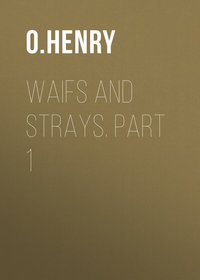
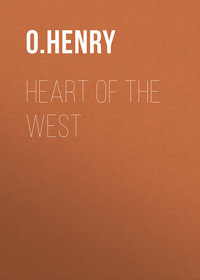

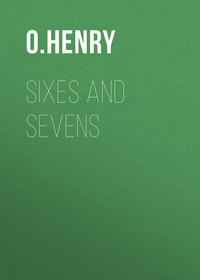

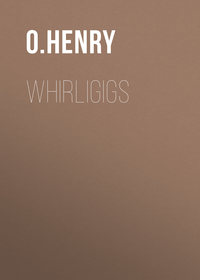
![Heart of the West [Annotated]](/covers_200/25561004.jpg)
